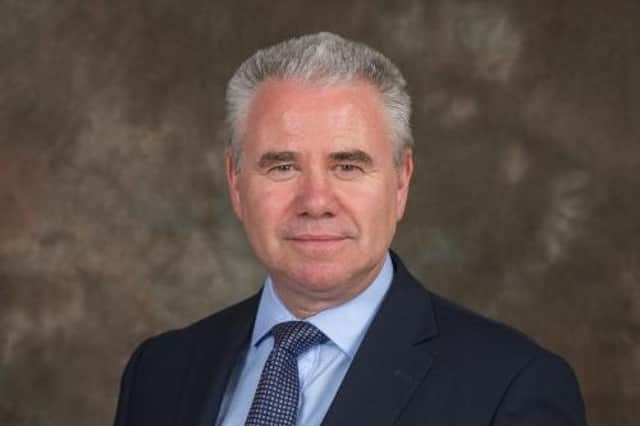Great Northern Conference: Building a greener, fairer, equal future for the North


The Chair of Radioactive Waste Management Ltd, he says the delivery of a Geological Disposal Facility (GDF) for radioactive waste can contribute to the realisation of that commitment.
This multi-billion pound national infrastructure investment project, with a longevity spanning generations, will create jobs, support skills acquisition, support supply chains, provide investment in supporting infrastructure and act as a catalyst for the realisation of a community’s vision for its future.
The GDF, a series of disposal vaults and tunnels up to one kilometre underground, is the internationally accepted best way in which to manage this waste for the long-term. Countries such as Finland, France and Sweden are already pursuing the provision of a GDF. Let us be clear: If RWM cannot provide assurance that a GDF will be safe and secure it would not want to construct it and the NDA and independent Regulators wouldn’t let it do it.
The UK has a long history of nuclear innovation and the use of nuclear materials in power generation, medicine and defence.
These activities have generated waste that is currently stored at over 20 locations around the country. It is a legacy that requires constant management and that will, in time, need to be re-packaged with upgraded storage at huge expense.
The UK Government, and the Welsh Government, has determined that there needs to be a permanent disposal solution for this waste. There are two key parts to the Government’s policy. The first is that the geology needs to be suitable. The second is that the location of the GDF has a willing host community.
RWM worked with the British Geological Survey to undertake a review of the existing knowledge of the geology across England and Wales to consider matters that would be relevant to the safety of a GDF. As a devolved matter the Scottish Government has a separate policy covering civil nuclear waste located in Scotland and is not taking part in the UK GDF programme.
Significant parts of the country have been identified as having geology that could potentially be suitable for a GDF. However, until sub-surface site specific seismic and borehole investigatory work is undertaken the exact nature of the geology will not be known. RWM recognises that it’s important to have an informed view of the potential of different areas of the country, including the in-shore areas at the coast, when engaging with interested local authorities, landowners and communities.
RWM is already in initial discussions with parties who wish to know more in different parts of the country and two GDF Working Groups have been formed in Copeland and Allerdale Council areas in Cumbria to begin engaging with local communities. There is still time for other areas to explore this transformative opportunity.
The process starts with informal discussions to allow interested parties to find out more about this without any commitment and where both parties believe that there is genuine potential and interest in exploring a site for a GDF a Working Group is formed locally. This is the first public declaration of interest and principal local authorities are invited to join the Working Group.
If positive progress is made a Community Partnership is then formed with RWM providing £1million per year to be invested in the community initially, increasing to £2.5 million per year as further progress is made.
Further progress then leads, with the consent of the principal local authorities on the Community Partnership, to a Test of Public Support. A positive outcome is confirmation of the willingness of the community to host the GDF.
Many regulatory, engineering and design tests will be conducted to ensure and illustrate that a GDF can meet all of the safety, security and environmental regulations and requirements before it receives consent for it to be constructed. This is a very long-term process with community engagement at its heart.
The GDF is a large-scale environmental protection project that has the potential to contribute to transforming the socio-economic vitality of a community and the region within which it is situated.
Visit us at the Great Northern Conference and find out more – CLICK HERE.